Not sure what to write about it, but thought I'd post some summaries from articles and hope it will spur some discussion.
The people say the new world order is a conspiracy theory and at the same time talk about the "liberal world order" they are a part of.
They talk about "defending free speech" in one breath and promoting the limitation of speech they don't like with the other.
In a 2017 article German Finance Minister Wolfgang Schaeuble talked about the world order
>Europe must do more to defend liberal world order - Germany's Schaeuble
>"We have to improve our cooperation, we have to rely on our mutual trust," Schaeuble said at a ceremony where he was awarded the Henry A. Kissinger Prize by the former U.S. secretary of state personally.
>"We need to stick to our values, we need to be more convincing," said Schaeuble, a veteran member of Merkel's ruling conservatives.
>"If the United States is starting to take a skeptical view of its role as the guardian of global order – and we've already seen hints of this in recent years – then I would see this as a call to action directed at Europe, including Germany," he said.
>"That would be the end of our liberal world order. This order is still the best of all possible worlds, for ethical, political and economic reasons. And we want this order to keep moving forward, or at least not see it weakened," he said.
http://archive.is/onEir
>Flashes of anger, tears, and a promise: How Obama and world leaders privately reacted to Trump's election, as told by a former Obama adviser
>President Donald Trump's election left more than just a large portion of the US in shock. The outgoing President Barack Obama was equally rattled, as were some of America's closest international allies.
>In his memoir, "The World as It Is," Ben Rhodes, the former deputy national security adviser to Obama, talked about how Obama coped with knowing Trump would try to reverse much of what he had accomplished.
>At points, Obama questioned whether he and his advisers had miscalculated what Americans really wanted, the thing on which Trump bet his entire campaign: a focus on domestic policy over "empty cosmopolitan globalism."
>Obama urged Canadian Prime Minister Justin Trudeau to hold down the fort on policies they both championed. And German Chancellor Angela Merkel, who The Times said ran for another term in order to "defend the liberal international order" in the era of Trump, shed a tear in her final meeting with Obama - after which Obama sighed: "She's all alone," as a wave of populism permeated global politics on the heels of Brexit and Trump's election.
http://archive.is/s9KtV
>The first problem was that liberalism’s defenders oversold the product. We were told that if dictators kept falling and more states held free elections, defended free speech, implemented the rule of law, and adopted competitive markets, and joined the EU and/or NATO, then a vast “zone of peace” would be created, prosperity would spread, and any lingering political disagreements would be easily addressed within the framework of a liberal order.
>Efforts to spread a liberal world order also faced predictable opposition from the leaders and groups who were directly threatened by our efforts.
>It is also abundantly clear that post-Cold War liberals underestimated the role of nationalism and other forms of local identity, including sectarianism, ethnicity, tribal bonds, and the like. They assumed that such atavistic attachments would gradually die out, be confined to apolitical, cultural expressions, or be adroitly balanced and managed within well-designed democratic institutions.
>But it turns out that many people in many places care more about national identities, historic enmities, territorial symbols, and traditional cultural values than they care about “freedom” as liberals define it. And if the Brexit vote tells us anything, it’s that some (mostly older) voters are more easily swayed by such appeals than by considerations of pure economic rationality (at least until they feel the consequences). We may think our liberal values are universally valid, but sometimes other values will trump them (no pun intended).
>Such traditional sentiments will loom especially large when social change is rapid and unpredictable, and especially when once-homogeneous societies are forced to incorporate and assimilate people whose backgrounds are different and have to do so within a short span of time. Liberals can talk all they want about the importance of tolerance and the virtues of multiculturalism (and I happen to agree with them), but the reality is that blending cultures within a single polity has never been smooth or simple. The resulting tensions provide ample grist for populist leaders who promise to defend “traditional” values (or “make the country great again”). Nostalgia ain’t what it used to be, but it can still be a formidable political trope.
http://archive.is/XvsQ9
/mlpol/ - My Little Politics
Archived thread
>>150613
we are in a perpetual battle between;
law and freedom
society and individuality
globalism and nationalism
In physics its a battle between gravity and entropy.
In religion it is a battle between good and evil.
We cycle, success leads to failure and failure forces the re-finding of success. Success causes despotism, laziness, pleasure seeking, emotions>logic , failing baby rates, selfishness and resulting economic collapse; rather than sacrifice, hard work and service to society and family, and logic>emotions. The despotism erodes the functioning of society until it collapses. The response, to the collapse sensed, is a return to traditional values in a desperate search for solutions, where society was more functional. That conservatism (gravity), by its nature, rejects extreme liberal individualistic freedoms (entropy). These liberal freedoms are a natural urging that individuals want, because entropy is a natural occurrence. This entropy needs to be resisted and so we could label it "evil" and anthropomorphise it as a demon, then offer a solution of a unifying (gravity) perspective, religion.
The raising of individual urges above the common good is social entropy, and entropy rips apart social order/unity. Your quoted articles have made the assumption that greater individualism somehow leads to order and cohesiveness. I can't see how that would ever happen. Human empathy is limited to perhaps 10 people individually, and those who share its system of values at a more abstract clan level. Most humans can't empathise, or clan with, the whole planet of humans. And since the Earth is actually naturally divided by natural barriers (oceans, seas, rivers, mountains, etc) there should be no expectation of naturally occurring spontaneous global unity (until such time that technology completely obsoletes these barriers).
When sex's main role is fun and pleasure rather than babies, this form of despotism, destroys the projection of successful cultural values, and future workers, into the future. It destabilises the economy forcing a needed return to traditional values.
The past individual despotism was possible and affordable because the majority of society was at working age. Their taxes pay to fix the damage they inflict on society. The burden they imposed could be afforded. Now that isn't possible, not enough workers for all these gib-me-dat retiring boomers and immigrants. The importing of immigrants now adds additional entropy to the situation and destabilises the natural "returning to traditional values" solution. The immigrants themselves will also be suffering and will also return to their own traditional values, not the values of the host nation.
This global entropy (globalism) also has a physics counterpart: Brownian motion. It is inevitable that entropy will win, it always does (even black holes dissipate), and all of humanity with blur together but it will be painful. The pain could be lowered by nationalistic strong borders that allow this entropic brownian motion to occur at a comfortable pace. Fast globalism will lead to strong nationalistic counteraction.
(All of this does not even address how globalism is also a part of selfish greed and power acquisition. Nor does it address that the more entropy a society has, the more it is justified to turn it into a police state.)
we are in a perpetual battle between;
law and freedom
society and individuality
globalism and nationalism
In physics its a battle between gravity and entropy.
In religion it is a battle between good and evil.
We cycle, success leads to failure and failure forces the re-finding of success. Success causes despotism, laziness, pleasure seeking, emotions>logic , failing baby rates, selfishness and resulting economic collapse; rather than sacrifice, hard work and service to society and family, and logic>emotions. The despotism erodes the functioning of society until it collapses. The response, to the collapse sensed, is a return to traditional values in a desperate search for solutions, where society was more functional. That conservatism (gravity), by its nature, rejects extreme liberal individualistic freedoms (entropy). These liberal freedoms are a natural urging that individuals want, because entropy is a natural occurrence. This entropy needs to be resisted and so we could label it "evil" and anthropomorphise it as a demon, then offer a solution of a unifying (gravity) perspective, religion.
The raising of individual urges above the common good is social entropy, and entropy rips apart social order/unity. Your quoted articles have made the assumption that greater individualism somehow leads to order and cohesiveness. I can't see how that would ever happen. Human empathy is limited to perhaps 10 people individually, and those who share its system of values at a more abstract clan level. Most humans can't empathise, or clan with, the whole planet of humans. And since the Earth is actually naturally divided by natural barriers (oceans, seas, rivers, mountains, etc) there should be no expectation of naturally occurring spontaneous global unity (until such time that technology completely obsoletes these barriers).
When sex's main role is fun and pleasure rather than babies, this form of despotism, destroys the projection of successful cultural values, and future workers, into the future. It destabilises the economy forcing a needed return to traditional values.
The past individual despotism was possible and affordable because the majority of society was at working age. Their taxes pay to fix the damage they inflict on society. The burden they imposed could be afforded. Now that isn't possible, not enough workers for all these gib-me-dat retiring boomers and immigrants. The importing of immigrants now adds additional entropy to the situation and destabilises the natural "returning to traditional values" solution. The immigrants themselves will also be suffering and will also return to their own traditional values, not the values of the host nation.
This global entropy (globalism) also has a physics counterpart: Brownian motion. It is inevitable that entropy will win, it always does (even black holes dissipate), and all of humanity with blur together but it will be painful. The pain could be lowered by nationalistic strong borders that allow this entropic brownian motion to occur at a comfortable pace. Fast globalism will lead to strong nationalistic counteraction.
(All of this does not even address how globalism is also a part of selfish greed and power acquisition. Nor does it address that the more entropy a society has, the more it is justified to turn it into a police state.)
1527791750_1.jpg (39.9 KB, 375x502, EU Communist Jew Propagand….jpg)
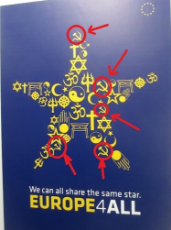
1527791750_2.mp4 (7.2 MB, Resolution:320x240 Length:00:02:46, Throw the Jew Down the Wel….mp4) [play once] [loop]
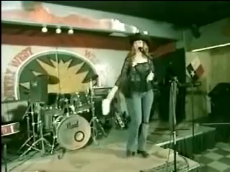
Schäuble is a retarded cripple with no power.
>>150613
The liberal world order is military stronger then it ever was, but it'll die because those within it don't want it anymore. It'll be like the Soviet Union, it'll whimper and die and then Europe won't have the US to defend it any longer and only those states who wish to be sovereign and fight for it will remain so.
I look forward to the day when we can liberate the UK and Canada.
The liberal world order is military stronger then it ever was, but it'll die because those within it don't want it anymore. It'll be like the Soviet Union, it'll whimper and die and then Europe won't have the US to defend it any longer and only those states who wish to be sovereign and fight for it will remain so.
I look forward to the day when we can liberate the UK and Canada.
>>150613
>defend free speech in one breath
>promiting the limitations of it in another
The UNations article from 2013.
Edited by Canadian free speech advocate Jordan Peterstein.
The same man who also encourages people to seek radical individualism and turn in on themselves, because? of his irrational fear of white collectivization causing genocide.
Anybody that says he is helping people improve themselves is telling convenient truth, his goals are statedly anti-west.
The Roman empire died when it turned in on its own self and crumbled under it's own weight.
When compared with America it is appropriate.
When inflicted directly on Americans themselves, how sad and short-sighted of Peterson.
>defend free speech in one breath
>promiting the limitations of it in another
The UNations article from 2013.
Edited by Canadian free speech advocate Jordan Peterstein.
The same man who also encourages people to seek radical individualism and turn in on themselves, because? of his irrational fear of white collectivization causing genocide.
Anybody that says he is helping people improve themselves is telling convenient truth, his goals are statedly anti-west.
The Roman empire died when it turned in on its own self and crumbled under it's own weight.
When compared with America it is appropriate.
When inflicted directly on Americans themselves, how sad and short-sighted of Peterson.
>>150641
>Your articles have made the assumption that greater individualism somehow leads to order and cohesiveness. I can't see how that would ever happen.
I agree and I think the liberal world order also knows this. Their goal as stated in the last article is to quote:
>The first problem was that liberalism’s defenders oversold the product. We were told that if dictators kept falling and more states held free elections, defended free speech, implemented the rule of law, and adopted competitive markets, and joined the EU and/or NATO, then a vast “zone of peace” would be created, prosperity would spread, and any lingering political disagreements would be easily addressed within the framework of a liberal order.
In other words once the order is big enough they can force all other countries to fall in line. Either through political, economical or military means.
I hope the tide has turned and we can return to an era of the nationalism our ancestors fought for and handed down to us.
>>150658
May freedom and sovereignty come with Gods speed. I long for it.
>Your articles have made the assumption that greater individualism somehow leads to order and cohesiveness. I can't see how that would ever happen.
I agree and I think the liberal world order also knows this. Their goal as stated in the last article is to quote:
>The first problem was that liberalism’s defenders oversold the product. We were told that if dictators kept falling and more states held free elections, defended free speech, implemented the rule of law, and adopted competitive markets, and joined the EU and/or NATO, then a vast “zone of peace” would be created, prosperity would spread, and any lingering political disagreements would be easily addressed within the framework of a liberal order.
In other words once the order is big enough they can force all other countries to fall in line. Either through political, economical or military means.
I hope the tide has turned and we can return to an era of the nationalism our ancestors fought for and handed down to us.
>>150658
May freedom and sovereignty come with Gods speed. I long for it.
6 replies | 6 files | 1 UUIDs | Archived
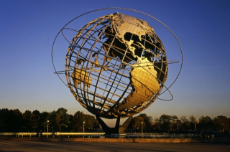
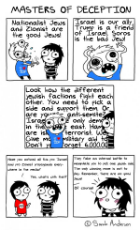
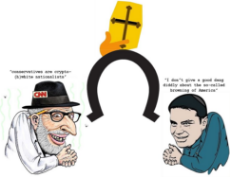
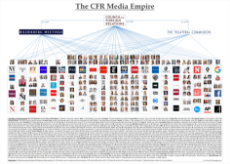
 Ex: Type :littlepip: to add Littlepip
Ex: Type :littlepip: to add Littlepip  Ex: Type :eqg-rarity: to add EqG Rarity
Ex: Type :eqg-rarity: to add EqG Rarity 